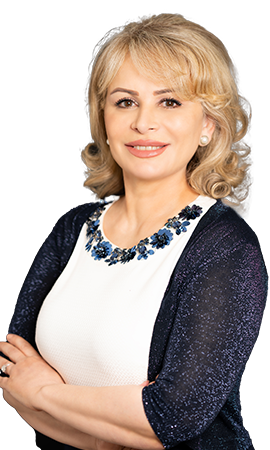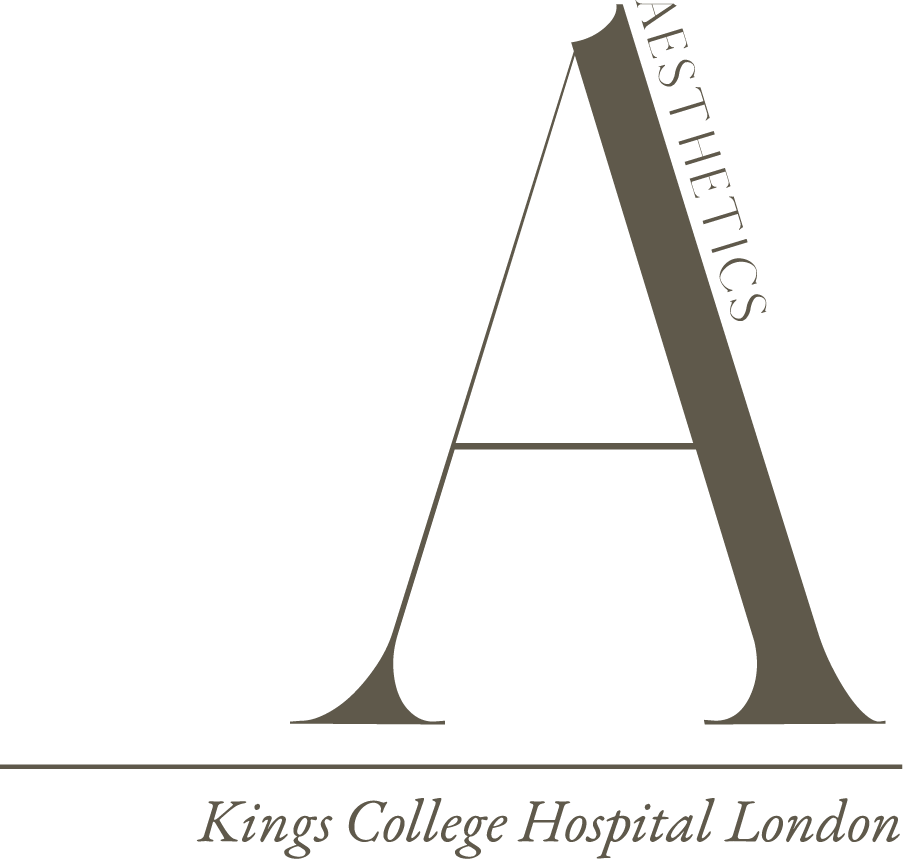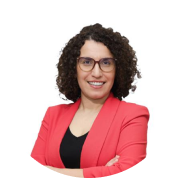Skin Lesion Removal
Skin Lesion Removal in Dubai
A skin lesion is a superficial growth or patch of skin that does not resemble the area surrounding it. There are several different types of skin lesions, each with specific characteristics.
The difference can be in the shape of moles, warts, skin tags, or various forms of cysts. However, skin lesion removal in Dubai is a cosmetic procedure that aims to remove the lesion. It is done to remove lesions that might become the source of physical discomfort.
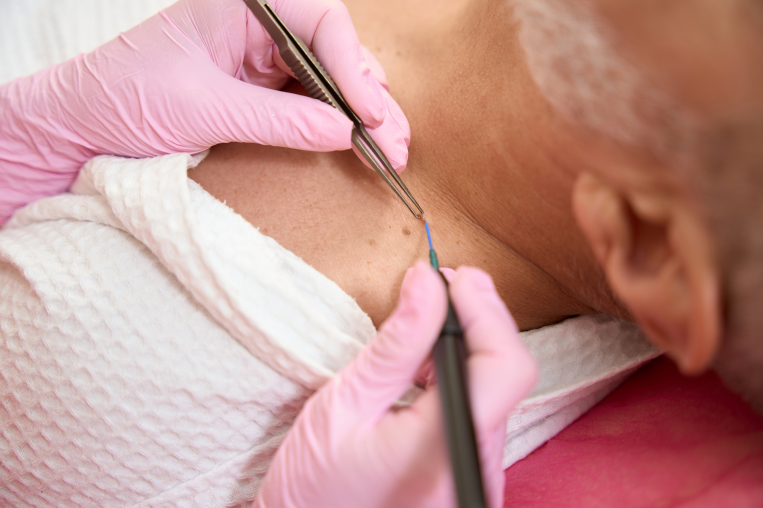
Causes of skin lesions
One can have skin lesions owing to the following reasons:
- Infection
- Genetics
- Allergic reactions
- Cancer
- Inflammation of blood vessels
- Skin diseases
People who have low self-esteem owing to skin lesions, which can also be life-threatening, opt for skin lesion removal in Dubai. The primary goal of the procedure is to reduce physical discomfort caused by these lesions.
How to choose the right surgeon for
skin lesion removal in Dubai?
A successful skin tag removal procedure depends on choosing the right surgeon or a dermatologist who is an expert in skin treatments. A good plastic surgeon should be a board-certified doctor, as well. Other characteristics of a good plastic surgeon include:
- He should be able to show you photos of previous skin lesion removal procedures.
- He should have good reviews from previous patients.
- He should have a keen artistic eye.
- His focus should be on the safety and care of the patient.
- He should have a good aesthetic sense.
Note that a professional plastic surgeon performs skin lesion treatment and not any medical aestheticians.
Pre-Operation Guidelines
After selecting the right surgeon for your skin lesion removal procedure, the next step is having a detailed consultation. During the consultation, you will review your expectations, the details of the procedure, the expenses for skin lesion removal, and the recovery timeline.
The plastic surgeon will examine your medical history and inquire about any medications you are using or have used before proceeding with the procedure. He will also physically examine your skin lesions in detail and take photos so that you can see the difference after the surgery.
Before the skin lesion procedure or any other surgical or non-surgical procedure, you should have a healthy lifestyle. You should follow a proper diet plan and exercise regularly. You should take the recommended medications properly.
You should stop smoking six weeks before the surgery. You should discontinue alcohol consumption and also avoid taking drugs that include aspirin. The use of Anti-inflammatory medications should also be halted. You should not drink or eat anything six to eight hours before the surgery.
How to treat skin lesions?
A skin lesion procedure uses local anaesthesia performed on an outpatient basis in a surgeon’s clinic. The time duration of the procedure depends upon the type of technique being used.
There are various techniques used for skin lesion removal. However, the choice of the procedure depends upon the type, size, and location of the skin lesion. The methods which can be used to remove the skin lesions are discussed as follows:
Shave Excision— The lesions that rise above the skin are treated with this technique. The surgeon uses a small blade to remove the outermost layers of the skin until the lesion is removed completely.
This technique does not require stitches, and topical medication is used on the wound to control bleeding.
Scissor Excision-— In this procedure, the surgeon uses a scissor to remove the lesion instead of a shaving blade. The surgeon will hold the lesion with the help of forceps by pulling it up, and the lesion is cut from the base. Any remaining part of the lesion may be scrapped off through a curette. This procedure also does not use stitches.
Cryotherapy— This procedure is also known as skin lesion removal freezing, and it entails the usage of a unique solution (argon gas or liquid nitrogen) onto the skin lesion with the help of a cotton swab.
In this way, ice crystals are formed on the lesion, which breaks up the lesion tissue cell. The treated area will then blister, and the destroyed lesion will be peeled away. It takes very little time to get executed.
Laser Treatment— A laser is applied to the skin lesion as part of this procedure. The high-frequency laser beam heats the cells in the lesion until they burst. The lesion disappears at the end of the procedure.
The Recovery
The period required for the recovery varies from person to person, but generally, the recovery period is small. You will have slight discomfort or pain near the treated area, but medications can minimise this.
You may have a fever and even expect chills after the treatment, but this condition will settle down after a week through the proper medication prescribed by your doctor. You will have a bit of scarring in the lesion areas, but this will disappear with time.
Anti-biotics will be prescribed to reduce the risk of infection. You will be able to continue your routine activities within a week. You should have follow-up appointments with your doctor to keep your healing process on track. You should follow all the instructions given by your surgeon to keep yourself healthy.
Post-Operation Guidelines
You should take all the medicines as per your doctor’s prescription. Immediately after your surgery, you should take extra care of your wounds:
- Keep them dry for at least two days.
- Clean the area around the wound with soap and water gently.
- You might have stitches after the procedure; do not rub or wash them. However, the stitches will be removed after six days of the procedure.
- Keep using the prescribed topical medicines on the wounds to reduce the risk of infection. Avoid strenuous activity for some days and rest as much as possible.
Risks and Complications
Like other procedures, skin tag removal in Dubai also has certain risks. However, discussing these risks with your surgeon before the procedure is essential. The possible risks and complications include:
Lesion Recurrence
Sometimes, lesions tend to occur again after the procedure. You might have to undergo the same procedure once again to get it fixed.
Skin Sensation Alterations
You might feel temporary numbness in the skin around the lesion. But this settles down in a couple of weeks.
Bleeding
Heavy bleeding is not likely to happen, but you might need a blood transfusion or another surgery to halt it.
Infection
The wounds may get infected if you do not manage your hygiene. Anti-biotics will be prescribed to get rid of the infection.
Anaesthesia Risks
Anaesthesia can sometimes lead to complications such as allergic reactions, respiratory infections, and blood clots in the legs.
Allergies
These happen scarcely, but your skin might be allergic to tape, solutions, or any other relevant medications. However, you might undergo extra treatment to cure allergic reactions in this case.
Ideal Candidate for the Skin Lesion Removal
Before removing skin lesions in Dubai, your plastic surgeon will check your eligibility criteria. You are an ideal candidate for the procedure if:
- You have a lump, sore, or abnormal skin patch anywhere.
- You have cancerous moles or lumps due to skin cancer.
- The skin lesion is causing you physical discomfort.
- You do not smoke.
- You are physically and mentally healthy.
Results
The results of skin lesion removal will be visible immediately after the procedure as soon as the scarring and bruising vanishes. However, skin lesion removal results are long-lasting if you properly care for your skin.
Benefits of Skin Lesion Removal
Skin lesion removal has various psychological and medical benefits, which include:
- It makes your skin smoother.
- It eliminates pain and discomfort caused by the lesions.
- It would prevent the spread of skin cancer if the lesion were cancerous.
- It improves your overall appearance aesthetically.
- It boosts your self-esteem.
Get in Touch
At Aesthetics by Kings College Hospital Dubai, we have some of the region’s leading plastic surgeons. Our skin lesion removal surgeons in Dubai are board-certified and focus on the safety and care of every patient in a compassionate environment with state-of-the-art facilities.
To book a consultation, get in touch using the contact details given, and one of our patient-care staff will book an appointment for you.
Meet Our Expert
Dr Lama Jalouk
Dermatologist, Cosmetics and Laser MD
